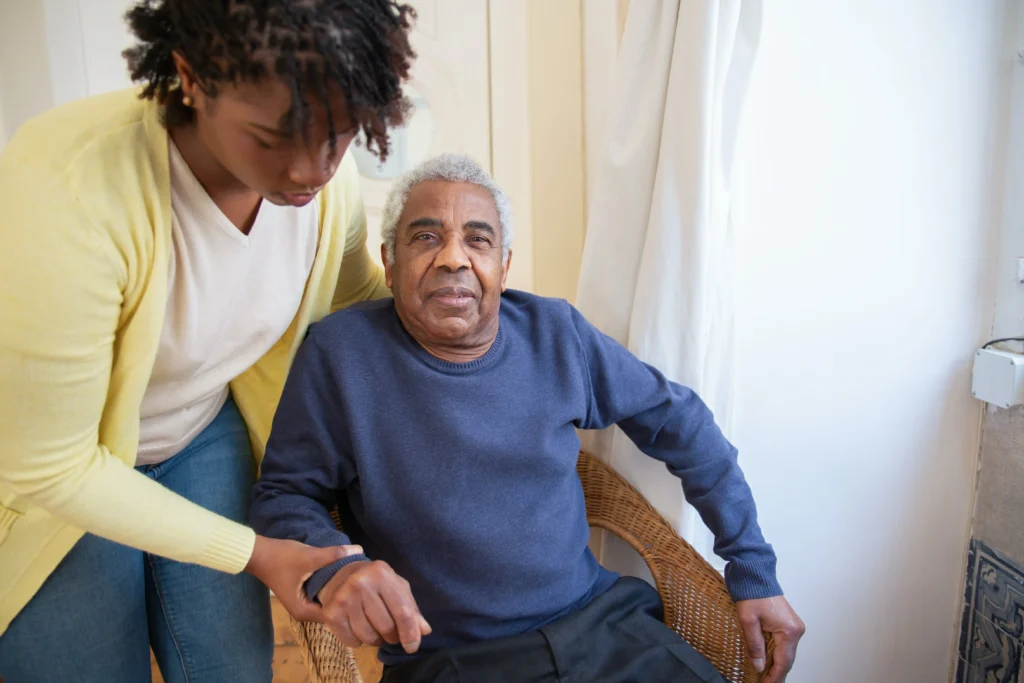Discover Hospice Care in 2024: Provide Compassionate Relief!

- What is Hospice Care?
- The Role of Hospice in Providing Comfort and Peace
- Benefits of Hospice Care for Patients and Families
- Finding a Hospice Near You
- Choosing the Right Hospice Caregiver
- Understanding the Services Offered by Hospice Agencies
- Hospice Care and End of Life Planning
- The Emotional Support Provided by Hospice Care
- Hospice Care Myths Debunked
- Conclusion
- Frequently Asked Questions (FAQs)
What is Hospice Care?
Hospice care is a specialized form of medical care that focuses on providing comfort and support to individuals who are facing a life-limiting illness. It is a compassionate approach that aims to improve the quality of life for patients and their families during what can be a challenging and emotionally overwhelming time.
Unlike traditional medical care, which often focuses on curative treatments, hospice care emphasizes pain management, symptom control, and emotional support. The goal is to ensure that patients experience as little discomfort as possible and can spend their remaining days in a peaceful and dignified manner.
The Role of Hospice in Providing Comfort and Peace
When facing a life-limiting illness, it is natural to feel scared, overwhelmed, and uncertain about the future. This is where hospice care plays a vital role. Hospice professionals, including doctors, nurses, social workers, and spiritual counselors, work together to address the physical, emotional, and spiritual needs of patients and their families.
Hospice care providers create a supportive and nurturing environment that fosters a sense of comfort and peace. They offer pain management techniques, such as medication and alternative therapies, to alleviate physical discomfort. Additionally, they provide emotional support and counseling to both patients and their loved ones, helping them navigate the complex emotions that arise during this difficult time.
Benefits of Hospice Care for Patients and Families
Hospice care offers numerous benefits to both patients and their families. For patients, it provides relief from pain and discomfort, allowing them to focus on spending quality time with loved ones and cherishing meaningful moments. Hospice care also ensures that patients’ wishes and preferences are respected, empowering them to maintain control over their own lives until the very end.
Families of hospice patients also benefit greatly from this specialized form of care. Hospice professionals offer guidance and education, helping families understand the progression of the illness and providing them with the tools to provide the best possible care. Moreover, hospice care extends beyond the physical needs of the patient. It offers emotional support and counseling to family members, allowing them to process their own feelings and find solace during this challenging time.
Finding a Hospice Near You

When seeking hospice care, it is important to find a provider that meets your specific needs and preferences. Fortunately, there are many resources available to help you find a hospice near you. Start by reaching out to your healthcare provider or local hospital for recommendations. They often have a list of trusted hospice agencies in your area.
Additionally, online directories and review websites can be valuable tools in your search for a hospice care provider. These platforms allow you to read reviews and compare services offered by different agencies, helping you make an informed decision. Remember to consider factors such as proximity to your home, available services, and the agency’s reputation when making your choice.
Below are some of the top hospice agencies;
- Compassus: Compassus provides hospice care with a focus on improving the quality of life for patients facing serious illnesses. They offer a range of services, including medical, emotional, and spiritual support.
- VITAS Healthcare: VITAS is one of the largest hospice providers in the United States, offering compassionate care for individuals facing the end of life. They provide a comprehensive range of services, including palliative care and grief support.
- Hospice of the Valley: This non profit organization is dedicated to providing hospice care to individuals and families in various communities. They focus on enhancing the quality of life for patients facing terminal illnesses.
- Seasons Hospice & Palliative Care: Seasons Hospice offers a holistic approach to end-of-life care, addressing the physical, emotional, and spiritual needs of patients. They provide hospice and palliative care services.
- Amedisys Hospice: Amedisys delivers hospice care with a commitment to personalized and compassionate support. They aim to improve the overall well-being of patients facing life-limiting illnesses.
- Heartland Hospice: Heartland Hospice provides care to individuals with life-limiting illnesses, emphasizing comfort and quality of life. They offer a range of services to address the physical, emotional, and spiritual aspects of care.
- Gentiva Hospice: Gentiva focuses on providing hospice care that aligns with patients’ goals and preferences. They offer a patient-centered approach to ensure comfort and dignity during the end-of-life journey.
- Encompass Health – Hospice: Encompass Health delivers hospice care as part of its broader healthcare services. They aim to provide comfort, support, and dignity to patients and their families during challenging times.
- Kindred Hospice: Kindred Hospice is committed to enhancing the quality of life for individuals facing serious illnesses. They provide personalized care and support to address the unique needs of each patient.
- Suncoast Hospice: Suncoast Hospice is known for its comprehensive hospice and palliative care services. They focus on helping patients and their families navigate the end-of-life process with dignity and compassion.
Please note that the services and approach of each hospice agency may vary, so it’s essential to contact them directly or visit their websites for more detailed and up-to-date information.
Choosing the Right Hospice Caregiver

Selecting the right hospice caregiver is a crucial step in ensuring the best possible care for yourself or your loved one. When evaluating potential caregivers, consider their qualifications, experience, and approach to care. It is important to find someone who is compassionate, empathetic, and skilled in pain management and end-of-life care.
Take the time to meet with different caregivers and ask questions about their philosophy of care, their availability, and how they involve families in the decision-making process. Trust your instincts and choose someone who makes you feel comfortable and understood.
Remember, hospice care is a deeply personal experience, and having a caregiver who connects with you and your family can make a significant difference.
Factors to Consider When Choosing a Hospice Caregiver
- Experience and Training: One of the foremost considerations is the caregiver’s experience and training. A caregiver with experience in hospice care is likely to navigate the complexities of end-of-life situations more effectively.
- Compatibility with the Patient’s Needs: Every patient is unique, and their needs vary. It’s essential to choose a caregiver whose approach aligns with the patient’s preferences and values. Compatibility ensures a more comfortable and supportive caregiving experience.
- Assessing the Reputation of Hospice Agencies: Researching the backgrounds of hospice agencies is paramount. Look for agencies with a proven track record of providing high-quality care. Reading reviews and testimonials from other families who have utilized their services can offer valuable insights.
- Communication and Collaboration: Effective communication between the caregiver, patient, and hospice team is crucial. The caregiver should be open to collaboration, working seamlessly with the medical professionals involved in the patient’s care.
- Creating a Comfortable Environment: A hospice caregiver contributes not only to the patient’s physical well-being but also to their emotional comfort. Designing a supportive and comforting environment is essential for the overall well-being of the patient.
- Emotional Support for Families: Beyond individual care, hospice caregivers should address the emotional needs of the patient’s family. Providing support during challenging times helps families cope with the emotional toll of witnessing a loved one’s decline.
- Handling End-of-Life Decisions: A skilled caregiver assists in facilitating end-of-life discussions, respecting the patient’s wishes, and ensuring that decisions regarding care align with the patient’s values and preferences.
- Costs and Insurance Considerations: Understanding the financial aspects of hospice care is crucial. Check whether the caregiver’s services are covered by insurance and clarify any potential additional costs.
- The Transition Process: Transitioning from active medical treatments to hospice care can be emotionally challenging. The caregiver should play a role in explaining this transition to the patient and family, providing reassurance and guidance.
- Crisis Management and 24/7 Availability: Emergencies can arise at any time, and a reliable hospice caregiver should be equipped to handle crises promptly. Ensure the caregiver is available 24/7 for any urgent needs.
- Regular Assessments and Adjustments: Ongoing assessments of the patient’s condition are essential for adapting the care plan as needed. A caregiver should be proactive in making adjustments to ensure the patient’s comfort and well-being.
- Legal and Ethical Considerations: Understanding the legal and ethical responsibilities of hospice care is vital. The caregiver must adhere to regulations and ensure the patient’s rights and dignity are respected.
If you are in search of a compassionate and professional caregiver to provide support during hospice care, please feel free to reach out to me here. I understand the importance of this challenging time and am dedicated to offering empathetic and personalized assistance to both the patient and their family.
Your comfort and peace of mind are my priorities, and I am here to discuss how I can contribute to enhancing the quality of care during the end-of-life journey.
Understanding the Services Offered by Hospice Agencies
Hospice agencies offer a wide range of services to ensure the holistic well-being of both patients and their families. These services are tailored to meet the unique needs of each individual and may include medical care, pain management, emotional support, and spiritual guidance.
Medical care provided by hospice agencies typically includes regular visits from doctors and nurses who specialize in palliative care. They monitor patients’ conditions, adjust medication as needed, and provide guidance on managing symptoms.
In addition to medical care, hospice agencies often offer access to counseling services, support groups, and bereavement care for both patients and their loved ones.
Hospice Care and End of Life Planning
End of life planning is an essential aspect of hospice care. It involves making decisions about the type of care you wish to receive and documenting your preferences in advance. This ensures that your wishes are respected and followed even when you are no longer able to communicate them.
Hospice care providers can assist you in creating an advance care plan that outlines your medical treatment preferences, including whether you wish to receive life-sustaining measures, such as resuscitation or artificial feeding. They can also guide you in appointing a healthcare proxy, someone who will advocate for your wishes if you become unable to do so yourself.
The Emotional Support Provided by Hospice Care
Facing a life-limiting illness can be an emotionally challenging experience for both patients and their families. Hospice care recognizes the importance of emotional support and offers various resources to help individuals cope with their feelings.
Hospice professionals, including social workers and spiritual counselors, are trained to provide emotional support, counseling, and guidance. They create a safe space for patients and their loved ones to express their fears, anxieties, and grief.
Through individual or group therapy sessions, they help individuals find strength, meaning, and peace during this difficult time.
Hospice Care Myths Debunked
Despite the many benefits of hospice care, there are several myths and misconceptions that surround it. It is important to debunk these myths to ensure that individuals facing a life-limiting illness can make informed decisions about their care.
One common myth is that hospice care is only for the final days or weeks of life. In reality, hospice care can be accessed for months before the end of life, allowing individuals to receive comprehensive support and comfort throughout their journey.
Another myth is that choosing hospice care means giving up hope. On the contrary, hospice care focuses on enhancing the quality of life, providing comfort, and supporting patients in their unique goals and wishes.
Conclusion
Hospice care plays a vital role in providing comfort and peace to individuals facing a life-limiting illness and their families. It offers a holistic approach that addresses not only the physical needs of patients but also their emotional and spiritual well-being.
By embracing compassion and understanding, hospice care providers create a supportive environment that allows patients to live their remaining days to the fullest.
If you or a loved one is in need of hospice care, take the time to research and find a provider that aligns with your values and preferences. Remember, hospice care is about embracing compassion, finding peace, and cherishing the moments that matter most.
Check out the 6 Powerful Tips for Crafting a Caregiver Resume
Frequently Asked Questions (FAQs)
What is the difference between palliative care and hospice care?
Palliative care focuses on relieving symptoms and improving the quality of life for individuals with serious illnesses, regardless of their prognosis. It can be provided at any stage of the illness and is often integrated with curative treatments. On the other hand, hospice care is specifically for individuals with a terminal prognosis, emphasizing comfort and quality of life in the final stages of life, usually when curative treatments are no longer pursued.
What qualities should I look for in a hospice caregiver?
When selecting a hospice caregiver, consider qualities such as compassion, empathy, effective communication skills, experience in end-of-life care, and compatibility with the patient’s needs and preferences. A good caregiver should also demonstrate professionalism, respect, and the ability to provide emotional support during challenging times.
How to find hospice agencies near me?
To find hospice agencies near you, consult local directories, healthcare provider listings, or use online platforms like Google Maps. You can also ask your healthcare provider for recommendations. Additionally, official health department websites and online reviews can help you identify reputable hospice agencies in your area.
How long is hospice care?
The duration of hospice care varies and depends on the individual’s condition. Hospice care is typically provided when a patient has a terminal prognosis with a life expectancy of six months or less. However, patients may transition in and out of hospice care based on their evolving health status. Some individuals may receive hospice care for a few weeks, while others may benefit for several months.
What is hospice care at home?
Hospice care at home involves providing end-of-life support and comfort to individuals in their own residences. This allows patients to receive personalized care in a familiar and comfortable environment. Hospice teams, including caregivers, nurses, and other professionals, visit the patient’s home to manage symptoms, provide emotional support, and coordinate necessary services. Home-based hospice care aims to enhance the quality of life for both the patient and their family during the end-of-life journey.
Note: This article is intended for informational purposes only and should not be taken as medical advice. It is always recommended to consult with a healthcare professional for personalized guidance, treatment and care plans.




